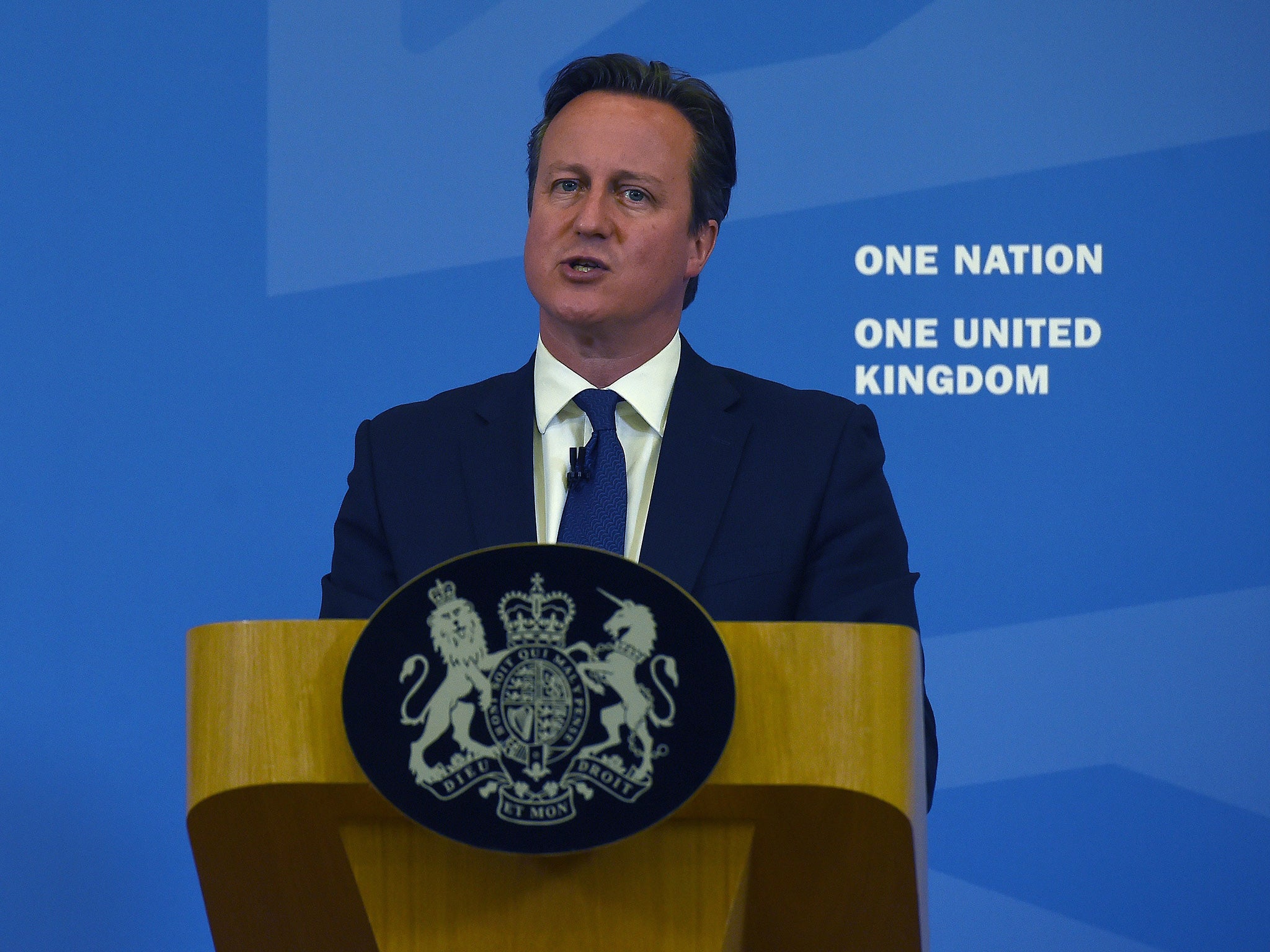David Cameron's counter-terrorism strategy is 'confusing, contradictory and over-simplified' - Muslim groups react to PM's big speech
PM laid out the government's five-year strategy for fighting home-grown Islamic extremism in a set-piece speech in Birmingham
David Cameron’s approach to fighting home-grown Islamic extremism is confusing, contradictory and over-simplified, according to groups representing Muslims in the UK.
The Prime Minister laid out four key ways that the government intends to combat the “poison” of Islamist ideology: offering a counter-narrative to the “warped” ideology of Isis, stemming the process of radicalisation, ensuring moderate Muslim voices are heard and reversing the “identity crises” among some British-born Muslims.
But the Ramadhan Foundation said he was guilty of confusing the issue of extremism and terrorism with cohesion and integration.
Mohammed Shafiq, the group’s chief executive, also accused Mr Cameron of contradicting himself by calling on Muslims to champion British values, such as freedom of speech, and then subsequently suggesting that Muslims who are opposed to gay equality are extremists.
Meanwhile the Muslim Council of Britain said the Prime Minister had simplified the issue of extremism. Mr Miqdaad Versi, assistant secretary general of the MCB, said Mr Cameron had wrongly assumed ideology was the main cause of the issue but suggested the reality on the ground, as well as academic research, pointed to other factors.
He warned that freedom of speech must not be undermined, insisting that it was “very important” to allow extremist views to be aired in public so they can be “challenged and not driven underground”.

“The best way to tackle those who have views that are not aligned with community cohesion and a united Britain is to air those views in public, challenge them in public and defeat them in public like our proud tradition of our country of free speech," he told The Independent. "Any form of free speech must be challenged and must be challenged robustly; whether it is a far-right extremist spreading the idea that Muslims are the problem in the UK or the opposite.
“The value of consenting to the views of other people is a proud tradition that should not be driven underground.”
Mr Versi also called on the government to offer a “clear and unambiguous” definition of what is meant by extremism, urging the government to include all forms of extremism, such as Islamophobia.
“For example, we had a poll that suggests 37 per cent of the British population would support policies to reduce the number of Muslims in the UK. That is a huge number… is the government going to be acting on those extreme views as well? Our fear is that Islamophobia has not been dealt with so far.”
Mr Cameron announced a range of measures to combat Islamic extremism, including a new law to give parents the power to cancel their children's passports if they are worried about them fleeing to join Isis.
While welcoming this specific measure, the Ramadhan Foundation’s chief executive Mohammed Shafiq criticised the overall message Mr Cameron was sending out.
“I am concerned that yet again Cameron is conflating the issue of extremism and terrorism with those of cohesion and integration,” he told The Independent. “He says that Muslims are not doing enough to integrate and that risks fostering extremism – but just what is enough and how do you measure it?
“There is also a contradiction between Mr Cameron extolling British values such as free speech and then suggesting that Muslims who object to gay equality are somehow extremist and their views should not be tolerated.
“Everyone in this country, Muslims included, must have a right to express their view no matter how intolerant they are.
“On the positive side I think a lot of Muslim families will welcome the being able to get children’s passports confiscated if they’re worried about them being radicalised without the risk of them being criminalised. And I also think the involvement of Louise Casey will be a force for good.”
Mr Cameron said the responsibility to "de-glamourise" groups like Isis lay with a combination of the authorities, community and religious leaders, schools and families, and British society must work together to "de-glamourise" groups like Isis by making youngsters aware of the brutal reality of life in the parts of Iraq and Syria under Isis control.
In a chilling message to anyone tempted by joining Isis, Mr Cameron said: "You won't be some valued member of a movement. You are cannon fodder for them. They will use you. If you are a boy, they will brainwash you, strap bombs to your body and blow you up.
"If you are a girl, they will enslave and abuse you. that is the sick and brutal reality of Isil."
Join our commenting forum
Join thought-provoking conversations, follow other Independent readers and see their replies
Comments
Bookmark popover
Removed from bookmarks